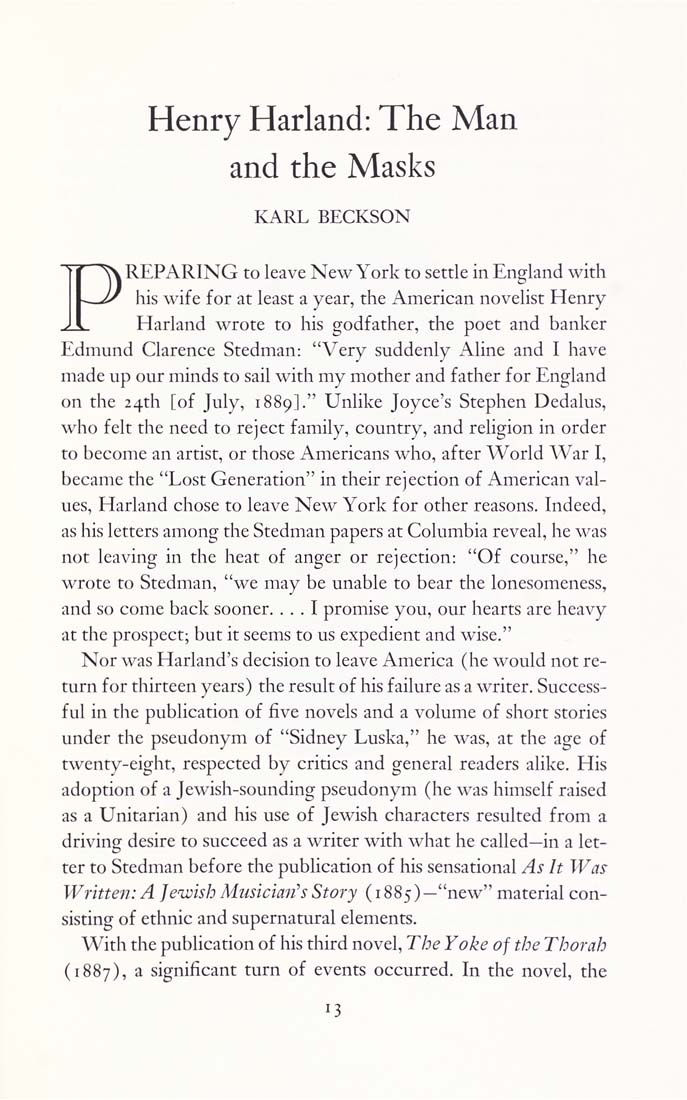Columbia Library columns (v.28(1978Nov-1979May))
(New York : Friends of the Columbia Libraries. )
|
||
|
|
|
|
| v.28,no.3(1979:May): Page 13 |

p Henry Harland: The Man and the Masks KARL BECKSON REPARING to leave New York to setde in England with his wife for at least a year, the American novelist Henry Harland wrote to his godfather, the poet and banker Edmund Clarence Stedman: "Very suddenly Aline and I have made up our minds to sail with my mother and father for England on the 24th [of July, 1889]." Unlike Joyce's Stephen Dedalus, who felt the need to reject family, country, and religion in order to become an artist, or those Americans who, after World War I, became the "Lost Generation" in their rejection of American val¬ ues, Harland chose to leave New York for other reasons. Indeed, as his letters among the Stedman papers at Columbia reveal, he was not leaving in the heat of anger or rejection: "Of course," he wrote to Stedman, "we may be unable to bear the lonesomeness, and so come back sooner. ... I promise you, our hearts are heavy at the prospect; but it seems to us expedient and wise." Nor was Harland's decision to leave America (he would not re¬ turn for thirteen years) the result of his failure as a writer. Success¬ ful in the publication of five novels and a volume of short stories under the pseudonym of "Sidney Luska," he was, at the age of twenty-eight, respected by critics and general readers alike. His adoption of a Jewish-sounding pseudonym (he was himself raised as a Unitarian) and his use of Jewish characters resulted from a driving desire to succeed as a writer with what he called-in a let¬ ter to Stedman before the publication of his sensational As It Was Written: A Jewish Musician's Story (1885) —"new" matetial con¬ sisting of ethnic and supernatural elements. With the publication of his third novel. The Yoke of the Thorah (1887), a significant turn of events occurred. In the novel, the 13 |
| v.28,no.3(1979:May): Page 13 |







